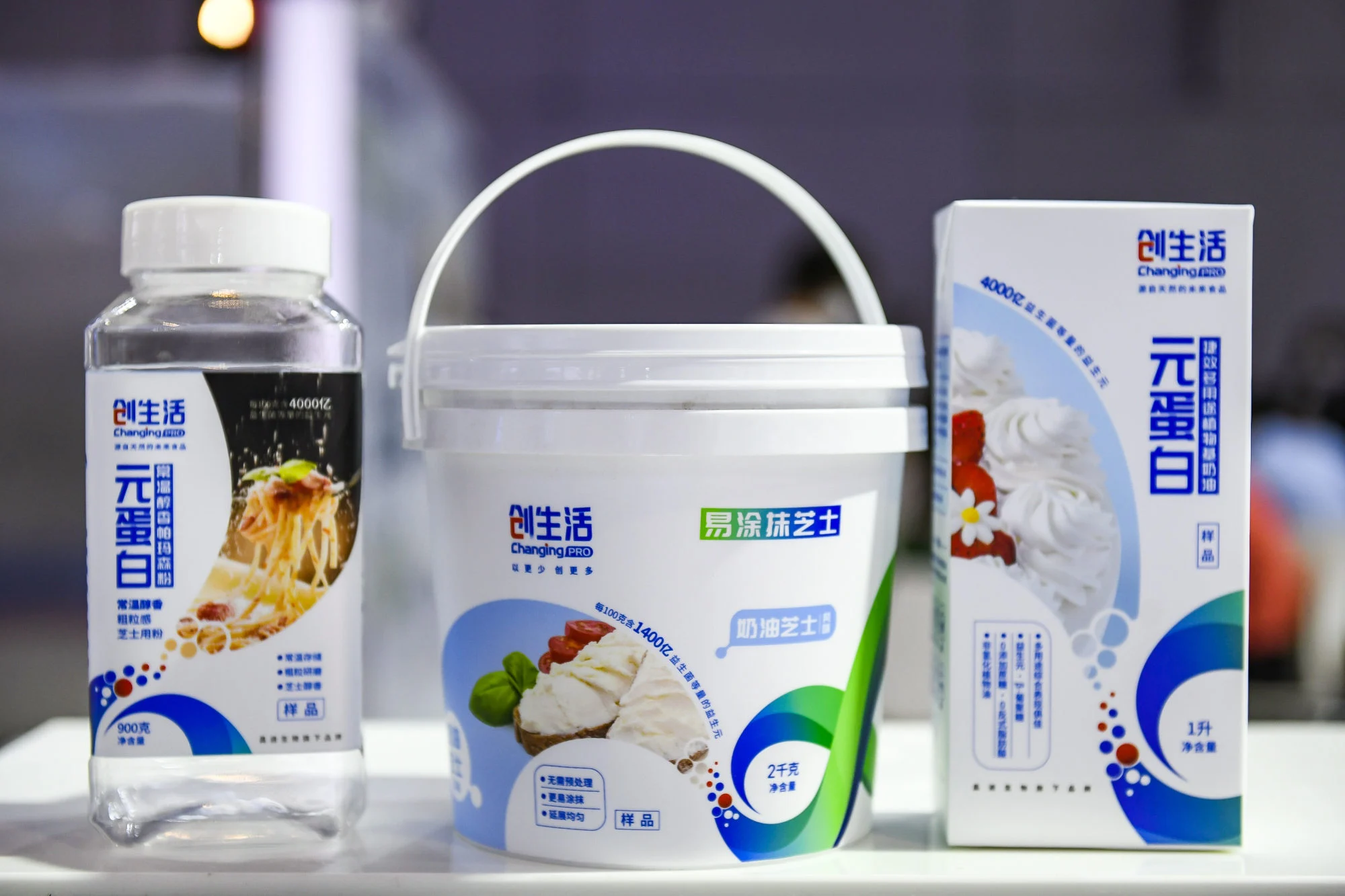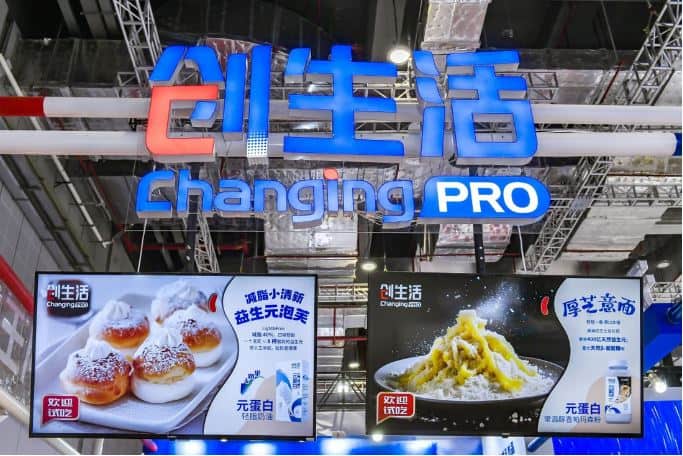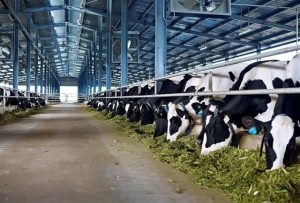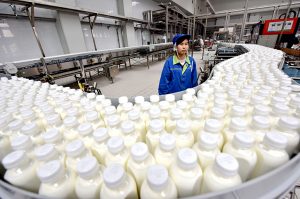
Changing Bio has launched a range of dairy products such as whipping cream, cheese powder and ice-cream made from a microbial ingredient called Kluvy Protein.
The start-up’s biomass fermentation-derived protein has been approved by the China Food and Drug Administration
Chinese start-up Changing Bio, which makes dairy products from microbial protein using fermentation technologies, hopes to capitalise on the surging demand for environmentally sustainable replacements and help the nation achieve its climate goal, according to a top executive.
Last month, the company launched China’s first fermentation-derived dairy products at the annual Bakery China Expo in Shanghai, showcasing a range of products including whipping cream, cream cheese, parmesan powder and ice cream.
Changing Bio’s microbial ingredient dubbed Kluvy Protein, derived from yeast sourced from the southeastern edge of the Qinghai-Tibet Plateau in the town of Shangri-La, is the source of protein of the company’s products. The products are identical to dairy in taste and texture but contain no animal ingredients.
“There are over one trillion species of microbes on earth, which harbour a vast amount of opportunities to obtain high-quality proteins,” said CEO Luo Bin.

China’s protein uptake is expected to grow from 57 million tonnes in 2018 to 70 million tonnes by 2025, accounting for 35 per cent of the global protein market value, according to a 2019 report by non-profit Food Innovation Australia.
At a meeting last March, Chinese President Xi Jinping urged officials to support alternative proteins, from plants and microorganisms alongside traditional food sources, to improve food security.
While fermentation has been used for centuries in food production, awareness about global warming and growing demand for environmentally sustainable proteins has seen the use of fermentation expand to other applications, including food tech.
The six-year-old Shanghai-based Changing Bio says it uses two fermentation technologies to produce proteins from microbes – biomass fermentation and precision fermentation. The first uses yeast’s protein-growing power to produce microbial proteins naturally, and the latter uses genetically engineered microbes to “brew” all the components that make up specific proteins that are biologically identical to those produced by animals.
As precision fermentation is not yet approved for sale in mainland China, Changing Bio’s current products are made only using biomass fermentation. Its biomass fermentation-derived protein has already been approved by the China Food and Drug Administration as a food ingredient.
According to Luo, the company’s products are priced comparable to traditional dairy products, low in fat and sugar and high in prebiotics and dietary fibre.
Protein production using microbial fermentation is “thousands of times” more efficient than traditional animal agriculture, which uses a lot of resources such as land and water and is also time consuming, Luo said.
“It takes at least three or four years to raise a cow and obtain its milk or meat, but the whole process of producing high-quality protein using microbial fermentation only takes [a few dozen] hours.”
One reaction tank can produce 400 tonnes of protein a year, which can meet the protein needs of 5,000 to 10,000 people, he added.
Last June, Changing Bio received US$22 million in a series A round, reportedly the largest for a Chinese food tech company, led by Bits x Bites, Hillhouse Capital, Sherpa Healthcare Partners and others.
The company has established two research and development centres in Shanghai and Qingdao that can produce enough microbial protein powder for 200 to 300 tonnes of alternative food products such as cream and cheese. Changing Bio plans to expand its production capacity by 20-fold in the fourth quarter of this year.
Investments in the food tech sector looks have seen tremendous growth. Defying global economic trends, investments into Asia-Pacific-based fermentation protein companies surged by 67 per cent last year, according to a report from the Good Food Institute APAC last year.
Chinese consumers have also shown an eagerness to diversify their protein supply by incorporating new foods that they believe will deliver high nutritional value and food safety at an affordable price, according to the alternative protein think tank.
“Microbial proteins could become the third pillar in the future protein industry besides animal proteins and plant-based proteins,” said Luo from Changing Bio.




















